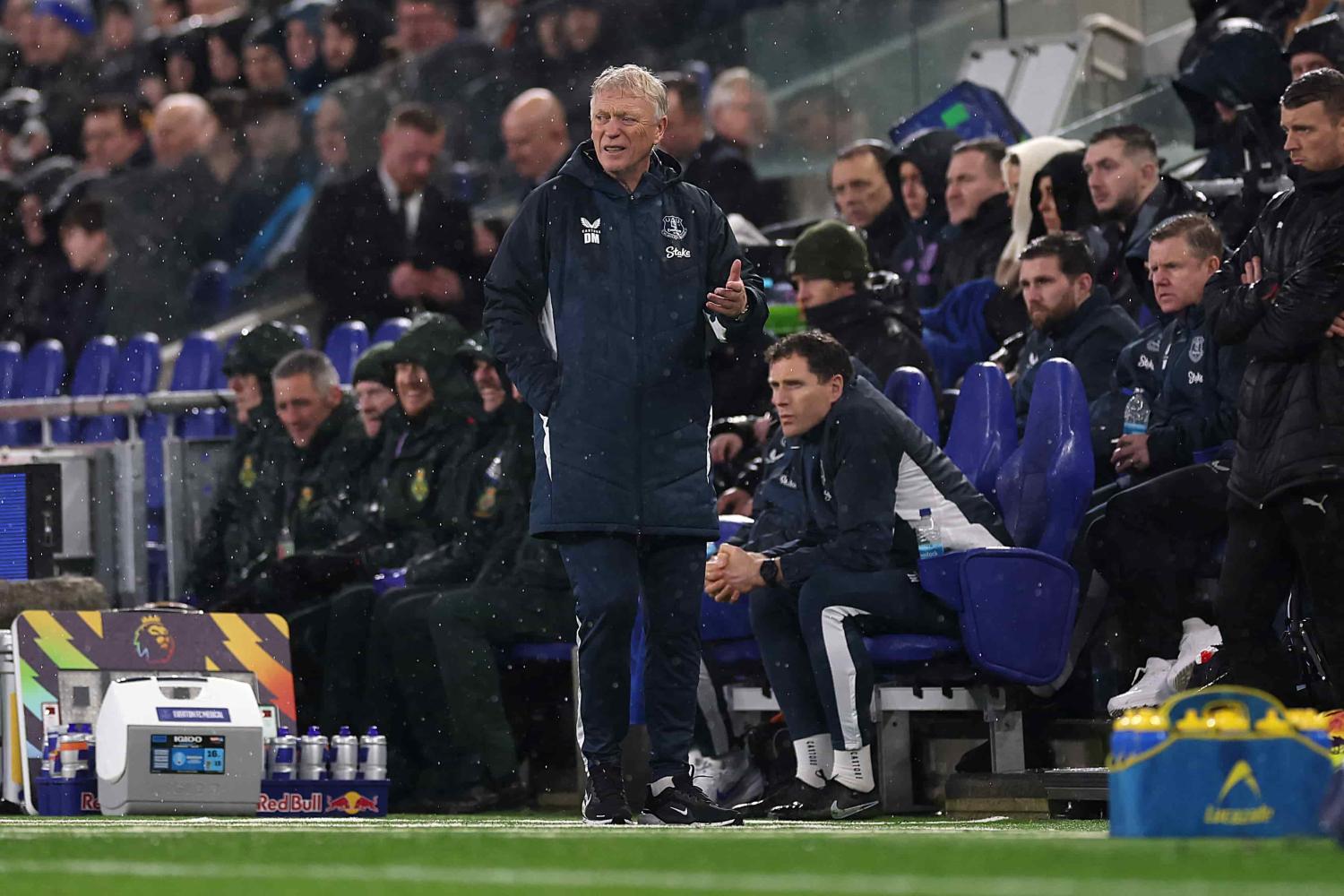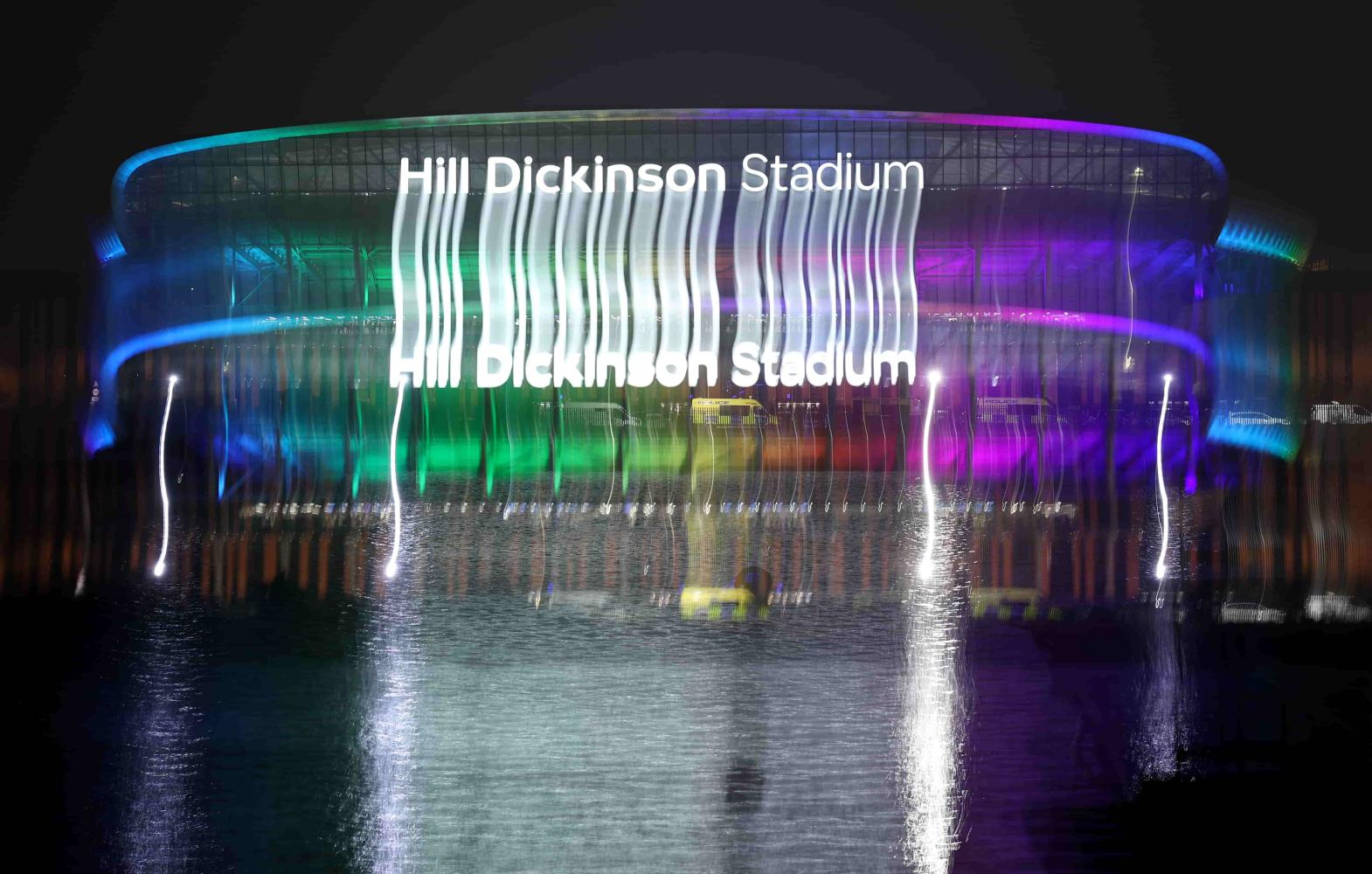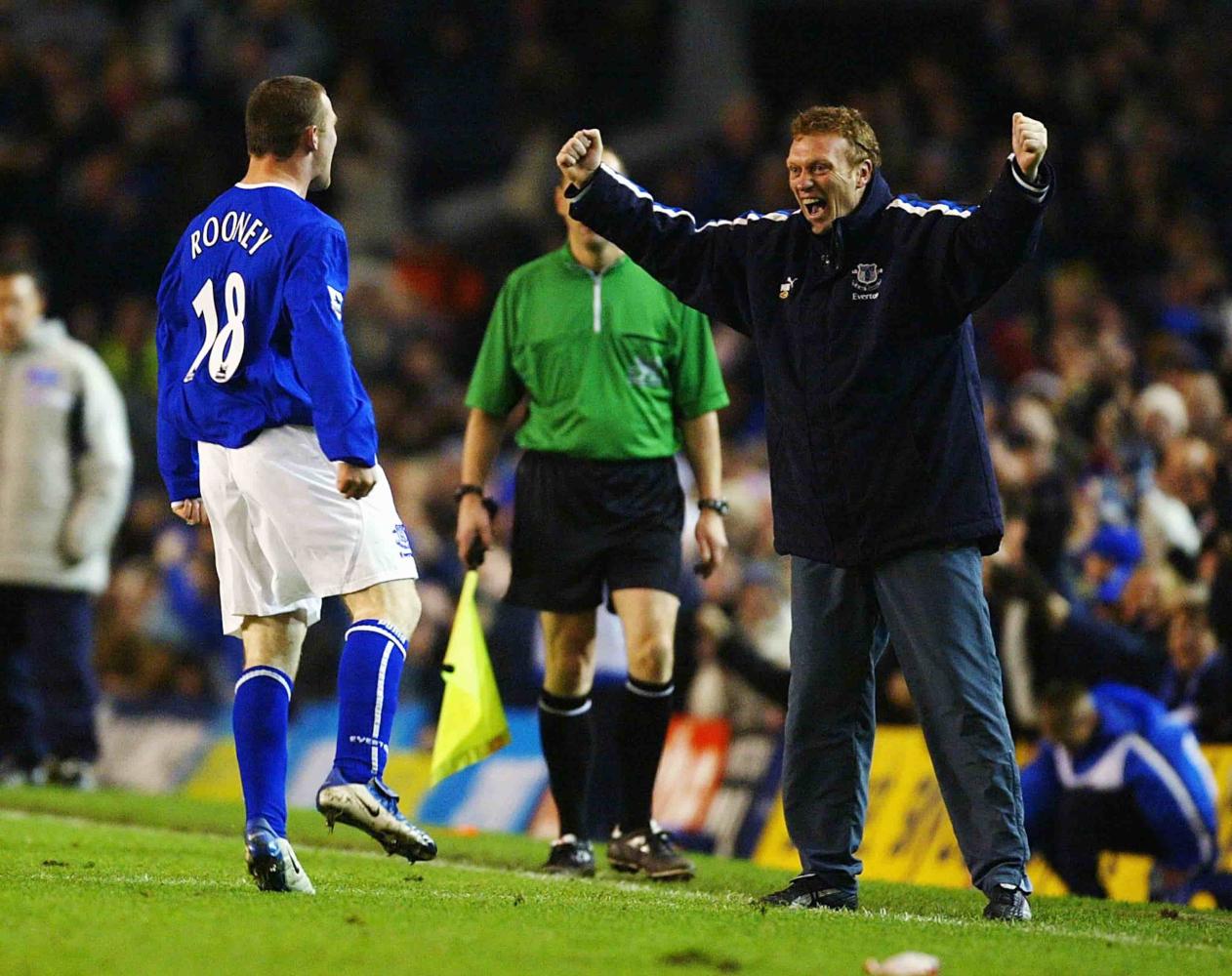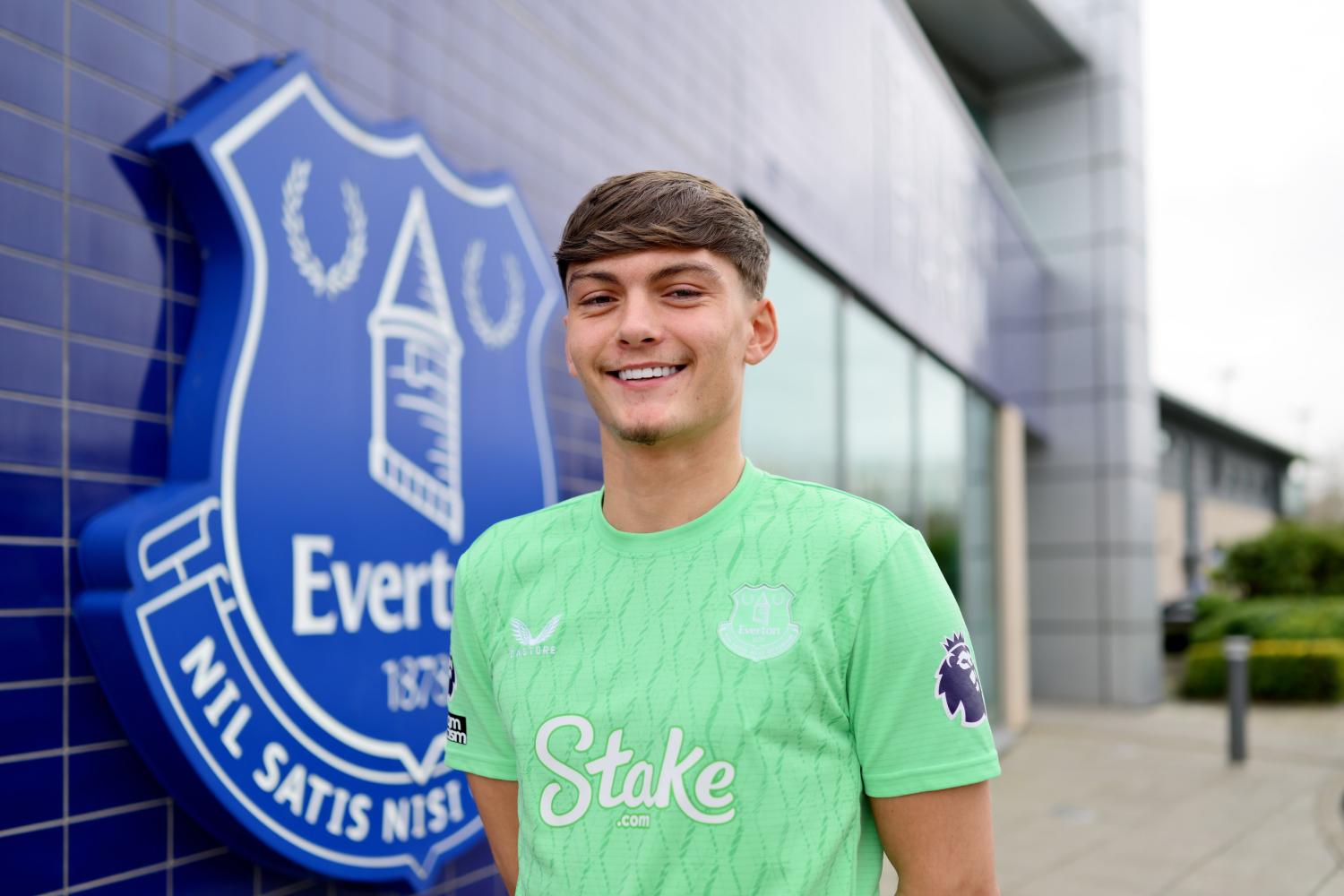ToffeeWeb Viewpoint
No Grounds for Sharing
by Lyndon Lloyd
I'm sure many of us read with interest Professor Alan Harding's recent article supporting the idea that in their search for locations for their respective new stadium, Merseyside's two biggest clubs should properly address the concept of sharing a purpose-built stadium.
Coming at the subject as an outsider, Professor Harding is able to offer a sensible and objective view, and to anyone standing on neutral ground, his arguments make perfect sense on almost every level; in terms of cost, logistics and reduced competition for national and international attractions, Everton and Liverpool would be better off building a shared stadium than investing separately in massive redevelopment projects of their own.
Unfortunately, the Professor's lack of connection to either club means that, through no fault of his own, he misses all the intricacies and the complexities of the Everton-Liverpool rivalry, the history of the respective clubs, particularly that of Everton, and the perennial battle of pride between the fans.
Professor Harding offers up Inter and AC Milan by way of an example of two fiercely competitive local rivals happily sharing a common stadium. It is true that these two Italian giants have a lot in common with those in the city of Liverpool - most notably the fact that Inter were born from a split in the ranks at Milan A.C. in the first decade of the 20th Century in the same fashion that Everton gave birth to Liverpool. However, while I wouldn't presume to know much about the Inter-AC rivalry, it surely can't compare to that on Merseyside or they wouldn't be sharing a stadium!
In fact, the Professor's assertion that "the idea that Arsenal and Tottenham, or Celtic and Rangers, should move in together would rightly be laughed out of court" is just as relevant to Everton and Liverpool, despite the unique relationship between the fans on Merseyside he rightly describes.
The Mersey derby may be the friendly or family derby because of the relationship and lack of need for segregation that exists between the fans, but that merely illustrates how much the rivalry is embedded in the game of football as opposed to some larger tribal or religious hatred. And because the clubs' respective stadia are theatres of footballing dreams, the idea that the Blues and the Reds could share grounds is unthinkable.
Everton and Liverpool Football Clubs are drenched in history, not only from their own respective successes, but also from their traditional rivalry.
The inter-relationship between the blue and red sections of Liverpool has a huge bearing on this emotional issue, but there is another enormous dimension to the debate: Everton's illustrious past and the unique place the club holds in the history of English stadia - indeed the development of the game in the home of football, full stop.
Everton FC has a history of being at the very forefront of the English game as far as stadia are concerned. When still playing their home games at Anfield, Everton's ground was the first in the League to stage an international fixture and one of the first to stage the FA Cup Final (1894). When the club moved in 1892 and built Goodison Park, it was the first major football stadium to be built in England.
Goodison retains the record to this day of having staged more international fixtures than any other league ground in the country and, of course, by virtue of Everton's unparalleled top flight record, she has also staged more top division games than any other stadium. In 1966, Goodison was one of the main venues for that year's World Cup, staging the semi-final between West Germany and Portugal.
Goodison Park was also the first stadium to feature a three-tier cantilever stand as Everton - by that stage dubbed the Mersey Millionnaires - continued to blaze a trail in domestic football.
Now, it could of course be argued that should Everton move to a new stadium and Goodison Park is reduced to rubble, all of that will be consigned to the history books. However, it is the very fact that Everton have, until recently, been able to boast the one of the best league grounds in the country - and have the potential to stake that claim again if the Kings Dock bid wins the day - that makes the thought of diluting that history by sharing with another club - especially Liverpool - so much more unpalatable.
Everton has not only stood on its own two feet for 123 years, the club has been a leader and an innovator for most of its existence. Times may be harder on the pitch, in the boardroom and on the balance sheet, but we have a proud history that is not easily tossed aside in the name of expediency and Merseyside harmony.
There are, of course, niggling logitical issues that further complicate any proposal that we get into bed with the enemy.
Liverpool are better placed to draw up plans for a stadium that seats 70,000; the way Everton are going right now, we'd be lucky to fill half that and the draw of a shared stadium is not likely to match that of a ground owned exclusively by Everton.
What colour would the stadium be decorated in? More than likely neutral grays, black and metal, creating a sterile, faceless environment and hardly a place to call home for either set of fans.
And whose statues would go where? And how are Everton fans going to stomach walking past an image of Bill Shankly - the architect of so much Blue misery - every time they visit the ground when the Liverpool fans probably don't even know who Dixie Dean was, such is their blinkered and modern outlook on life!
And can you imagine a home derby without home field advantage? Without a stadium 90% full of Blues on their own patch and all the pride that comes with inviting the enemy into your back yard?
When it comes down to it, Everton is no ordinary club and the relationship between the Blues and Reds in Liverpool is no ordinary rivalry. At a time when our illustrious past is about all we can cling to in our determination to be regarded as a big club, we need a bold statement that Everton are back, in a top class stadium that outshines anything in the domestic game, and moving in the right direction again.
We want that feeling of superiority over our Red neighbours, that claim to be the very best in everything we do and possess. Football is a partisan game governed above all by unfathomable and undeniable emotion: feelings of pride, of loyalty, of devotion and of belonging. A club's stadium embodies that whole gamut of feelings. It's a place to call home, a mecca for this peculiar religion we have chosen, and it seems as though the heads of both clubs understand that, indeed encourage it. Everton and Liverpool could never and will never share a common stadium; the vehemence of their rivalry, the extent of their history and the depth of their respective pride would never allow it. Amen to that!
©2001 ToffeeWeb, 5 April 2001
For further insight into the history of the Merseyside derby the Blue-Red rivalry, visit the Folklore section.










